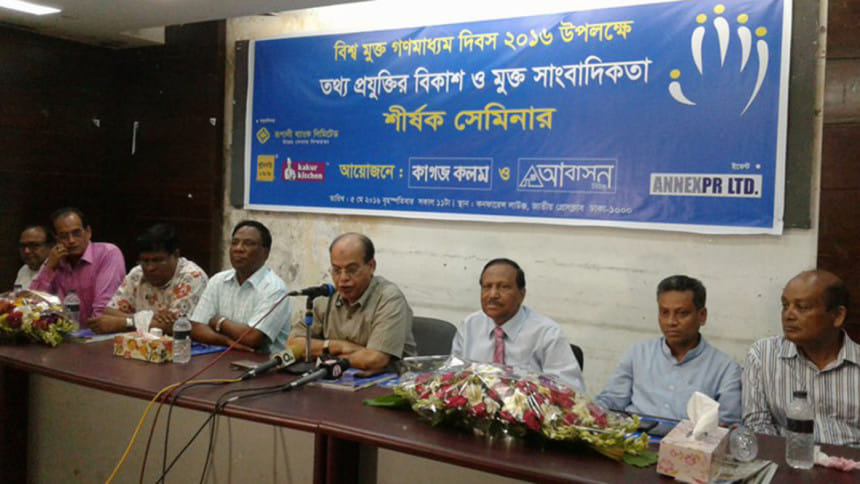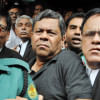Changes only after talks with journalists

Bangladesh Press Council Chairman Justice Md Mamtaz Uddin Ahmed yesterday categorically said no changes would be brought to the Press Council Act if journalists opposed.
He made the comment at a seminar jointly organised by Kagoj Kolom, a weekly newspaper, and Abasan News, an online portal, at the Jatiya Press Club. The programme was organised to mark the World Press Freedom Day, which was on May 3.
The council has taken a move to amend its current laws. It has proposed to include a provision of suspending the publication of any newspaper for one to three days if it does not follow the directives of the council.
“It [the proposal] is only a recommendation and will be discussed further with all stakeholders, including journalists. If they decide not to keep the provision, the council or I have nothing to do,” he said.
“I will not allow any amendment that goes against the interest of the journalists,” Mamtaz Uddin said.
The council sought the law commission's recommendations on the amendment to the current Press Council Act to make it more functional for journalists, the press council chairman said.
The law commission recommended that the council keep the power of stopping the publication of any newspaper for 30 days, he added.
However, the council did not support the idea of suspending the publication of any newspaper for 30 days. Rather, the council members recommended that it stop publication of any newspaper for one to three days, Mamtaz Uddin said.
The council also proposed to slap a fine of Tk 1 to Tk 5 lakh for violating directives, he said.
At the seminar, some pro-Awami League journalist leaders warned of a tough movement if any such amendment, which they said would affect journalists, was made.
At the seminar, Abdul Jalil Bhuyian, former secretary general of a faction of Bangladesh Federal Union of Journalists (BFUJ), lambasted the council for its proposals and said such changes would affect the media.
The journalists would wage a tough movement if any anti-media law is introduced, he added.
Omar Faruk, incumbent secretary general of the BFUJ, urged the council not to formulate any law against the media.
Iqbal Sobhan Chowdhury, media adviser to the prime minister and also editor of The Daily Observer, said efforts are being made to formulate a time-befitting Press Council Act and strengthen it on the basis of the recommendations of journalists.
No law would be functional if there is no provision of punishment, Iqbal said, adding that the amendment to the Press Council Act would save the media from yellow journalism.
Journalist and columnist Kamurzzaman Hira presented a keynote paper titled “Development of Information Technology and Independent Journalism” at the programme. Azizul Islam Bhuiyan, former chief editor and managing director of Bangladesh Sangbad Sangstha (BSS), presided over the programme.

 For all latest news, follow The Daily Star's Google News channel.
For all latest news, follow The Daily Star's Google News channel. 








Comments